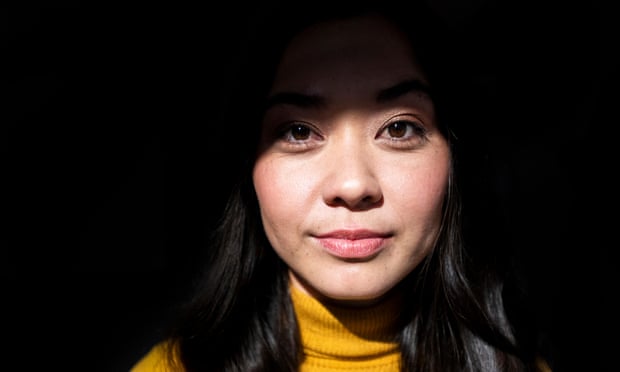Know My Name by Chanel Miller Review – Memoir of a Sexual Assault
By Rebecca Liu
t could have been an entirely different story, one so ordinary in its violent diminishment of a woman. The script is well-worn. An assault at a student party; a disorienting walk through hospital clinics and police stations; panic attacks; a forensic examination of your character. How much did you drink? Why did you go to that party? Did you have a stable relationship with your boyfriend? You react by receding further into yourself. Perhaps you drop the charges; perhaps the judge is lenient. Your assailant soon gets on with his life, free to walk the halls of power. Trust the system, you were told. But sometimes there are facts that bring you closer to something resembling justice. For a 22-year-old recent university graduate known to the world as “Emily Doe”, there were a few. Fact: Brock Turner, the man who assaults her behind a fraternity house skip in January 2015, is a Stanford University student and swimmer. Spiralling media attention in what is deemed the “Stanford swimmer case” means her rape forensic evidence kit receives expedited processing, thus avoiding, she later relates, the fate of a hundred others collecting dust in a slow-moving backlog. Fact: there are two witnesses to the assault, male graduate students who happen to be cycling past. They chase Turner away, and testify in Doe’s favour. Fact: after Turner is found guilty on three felony counts in March 2016, Doe, now 23, writes a powerful 7,000-word letter addressed to her attacker that she reads aloud at his sentencing. It is published on BuzzFeed in June and goes viral, receiving 15m views within a week. The letter is read aloud by congresswomen in the House of Representatives and, in response, California’s laws for sexual assault are amended to support future victims. Its opening line is often cited: “You don’t know me, but you’ve been inside me, and that’s why we’re here today.” When I first read it, I was also haunted by two other lines: “Sometimes I think, if I hadn’t gone, then this never would’ve happened. But then I realised it would have happened, just to somebody else.” What a strange world it is in which 23-year-olds are reflecting on the randomness of the cruelty inflicted on them.
Earlier this month, “Emily Doe” revealed herself to be Chanel Miller, a half-Chinese artist and writer from California. Miller, now 27, looks back at her high-profile sexual assault case in Know My Name. In the three years since the sentencing, she has gathered court transcripts and witness testimonies withheld from her during the case, which inform her memoir. The book blends Miller’s meditations on her life over the past few years with a discussion of the institutions that handle sexual assault cases: the police, the courts, and, in this instance, the university. Courtroom interrogations, ostensibly seeking objective facts, become contests over whose narrative draws the most sympathy. University administrators offer, then withdraw, their support in the face of potential litigation. The neutral faces of institutions, her story shows, so easily slip to reveal highly subjective battles over whose pain counts for what. The title of the book denotes declarative self-affirmation, something constantly denied to Miller after she woke up at the Santa Clara Valley Medical Centre in January 2015 with a police deputy and Stanford dean at her bedside. The last thing she remembers is stepping outside the fraternity house with her sister the night before. From then on, her life no longer feels like it is hers. In a daze at the medical centre, she is told there is reason to believe she has been assaulted and signs a stack of papers consenting to an immediate examination. Ten days later, on coming across an article online at work, she learns the full story of what happened to her. She reads of Turner’s life as an “Olympic hopeful” and discovers she is referred to as an “unconscious woman”. This dynamic will carry over into the courtroom, where, she relates, Turner’s ambitions, past accomplishments and present pain are magnified in testimonies from swimming coaches and ex-girlfriends. She, on the other hand, becomes a woman who failed to adequately protect herself against the natural lechery of the world that night in January, her use of alcohol thoroughly questioned. “His history included his childhood, education, summer jobs, sweet relationships,” she writes. “My history was blackouts one through five.” The book unveils what those on the outside can’t see. Miller recalls the repeated postponement of her trials, which leaves her schedule agonisingly beholden to someone else’s whims; her recurrent feelings of panic and dread that emerge long after the attack; the rebuilding of her life, as she takes art classes and joins comedy troupes to recover a sense of self. In the midst of all this, she navigates a byzantine legal system, often having to sit in the same courtroom as her attacker. One of the many lessons that comes across is how sexual assault victims need greater guidance through these worlds. When Miller agrees to press charges against Turner, she does so casually over the phone to a detective, right after she is discharged from the hospital. She does not realise what that will entail, thinking it to be the “equivalent to signing a petition”. A year and a half later, Miller is talking to a probation officer about Turner’s sentencing and confuses jail with prison (jail typically holds people awaiting trial or serving short sentences while those in prison tend to be serving longer sentences for more severe offences). She is sure that the officer twists her meaning, playing down the anguish in her testimony to recommend a short county jail sentence for Turner. When it was published in 2016, Miller’s letter stunned readers with the clarity of her voice, acuity of her rage and expansiveness of her empathy towards those in need of support. Her story offered other victims a shared language; Miller recalls receiving thousands of supportive letters from women recounting their own stories. Her memoir has this same mix of the intimate with the communal, placing her own pain against a backdrop of shared suffering. At the end of Turner’s sentencing, she feels as if she has climbed a high mountain of justice, a climb that many fellow victims have not been able to scale. Exhausted, she imagines looking down, “where I imagined expectant victims looking up, waving, cheering, expectantly … What could I tell them? The system does not exist for you.” Against a system that leads victims to recede into their own spheres of private suffering, Know My Name creates a space where this pain can sit and receive support from others. The last few chapters discuss the #MeToo movement and its landmark moments: the Harvey Weinstein revelations; the US gymnastics case; Christine Blasey Ford’s testimony in the Brett Kavanaugh hearings. When listening to women tell their stories, Miller stresses, it is important to let them sit with their hurt and anger and resist the urge to pre-emptively tie up their suffering with a bow through platitudes of courage. There is a final irony in how Stanford University, after agreeing to mount a plaque memorialising her story on campus, proposed as the inscribed quote: “I’m right here, I’m okay. Everything’s okay, I’m right here.” (Stanford had rejected Miller’s suggestions, finding them too emotionally charged.) These were the words, she tells us, she told her sister after being released from the hospital, hiding her own panic for her sister’s comfort. Even after cases are concluded, the pain of victims is diminished by the false friend of commemorating one’s bravery. In a world that asks too many survivors to keep their experiences to themselves and shrink their suffering to preserve someone else’s potential, Know My Name stands unapologetically large, asking others to reckon with its author’s dazzling, undiminishable presence. To read it, in spite of everything, inspires hope.
|
.
Any original material on these pages is copyright © BishopAccountability.org 2004. Reproduce freely with attribution.

